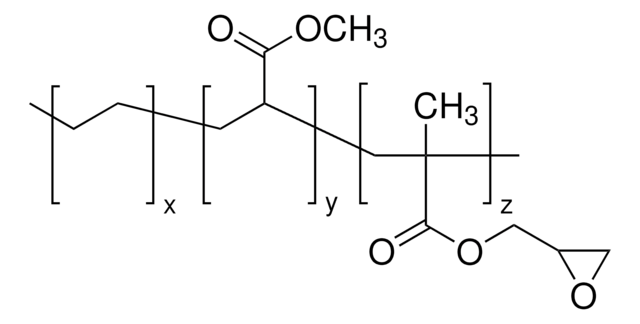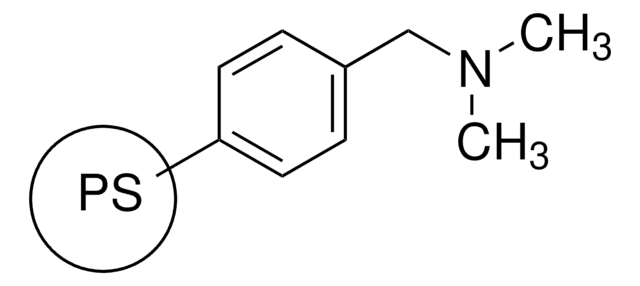All Photos(1)
About This Item
Linear Formula:
[C7H10O3]n
CAS Number:
MDL number:
UNSPSC Code:
12162002
NACRES:
NA.23
Recommended Products
form
solid
mol wt
Mn 10,000-20,000
refractive index
n20/D 1.381
mp
274-280 °C
InChI
1S/C7H10O3/c1-5(2)7(8)10-4-6-3-9-6/h6H,1,3-4H2,2H3
InChI key
VOZRXNHHFUQHIL-UHFFFAOYSA-N
Looking for similar products? Visit Product Comparison Guide
Signal Word
Warning
Hazard Statements
Precautionary Statements
Hazard Classifications
Acute Tox. 4 Oral - Eye Irrit. 2
Storage Class Code
11 - Combustible Solids
WGK
WGK 1
Flash Point(F)
Not applicable
Flash Point(C)
Not applicable
Certificates of Analysis (COA)
Search for Certificates of Analysis (COA) by entering the products Lot/Batch Number. Lot and Batch Numbers can be found on a product’s label following the words ‘Lot’ or ‘Batch’.
Already Own This Product?
Find documentation for the products that you have recently purchased in the Document Library.
Ran Tao et al.
Langmuir : the ACS journal of surfaces and colloids, 28(48), 16580-16587 (2012-11-15)
Initiated chemical vapor deposition (iCVD) of poly(glycidyl methacrylate) from supersaturated monomer vapor is reported. Rapid film growth rates, up to 600 nm/min, were observed. Films grown from supersaturated monomer exhibited distinct surface undulations. The temporal evolution of surface features during
Ying Shen et al.
Chemistry (Weinheim an der Bergstrasse, Germany), 18(43), 13755-13761 (2012-09-19)
The development of magnetic nanoparticles with multiple functions has been an ever-growing field because of their diverse applications in drug delivery, biosensing, cell labeling, and so on. In this study, a facile method was developed to construct multifunctional magnetic nanocomposites.
Peggy Scholtysek et al.
Langmuir : the ACS journal of surfaces and colloids, 28(44), 15651-15662 (2012-10-11)
Semitelechelic poly(glycerol methacrylate)s having a perfluoroalkyl end group (PGMA(n)-F(9)) were synthesized by ATRP. The interactions of these polymers with different degrees of polymerization with chiral or racemic dipalmitoylphosphatidylcholine (l-DPPC, d-DPPC, or rac-DPPC) monolayers at the air/water interface were studied. Langmuir
Peng Tao et al.
ACS applied materials & interfaces, 3(9), 3638-3645 (2011-08-10)
Visibly highly transparent indium tin oxide (ITO)/epoxy nanocomposites were prepared by dispersing polyglycidyl methacrylate (PGMA) grafted ITO nanoparticles into a commercial epoxy resin. The oleic acid stabilized, highly crystalline, and near monodisperse ITO nanoparticles were synthesized via a nonaqueous synthetic
F J Xu et al.
Acta biomaterialia, 7(8), 3131-3140 (2011-05-17)
Cationic polymers with low cytotoxicity and high transfection efficiency have attracted considerable attention as non-viral carriers for gene delivery. Recently we reported that ethanolamine (EA)-functionalized poly(glycidyl methacrylate) (PGMA) (termed PGEA) vectors can have excellent transfection efficiency, while exhibiting very low
Our team of scientists has experience in all areas of research including Life Science, Material Science, Chemical Synthesis, Chromatography, Analytical and many others.
Contact Technical Service







